Description
BOSTON: Don’t Look Back Classic Timeless Hard Rock.
SAMPLES: www.allmusic.com/album/dont-look-back-mw0000193053
audio review of the album: http://chirb.it/wKI3bI
Don’t Look Back is the second album by American rock band Boston, released in 1978. The title track is one of the band biggest hits, reaching #4 in 1978 on the Billboard Hot 100. The album sold over 4 million copies in the first month of its release, and has been certified 7x Platinum by the RIAA in the U.S.
This album also marked the beginning of the band legal fight with its record label Epic Records. Tom Scholz has been on record stating that executives at Epic pushed him and the band into releasing the album before they felt it was ready. He said of Don’t Look Back that “”it was ridiculously short. It needed another song.”” Their next album, Third Stage, was not released for another eight years, by which time the band and record label had parted ways and were fighting a courtroom battle that Boston ultimately won.
Tom Scholz has claimed in many interviews that he listens to the song “”The Journey”” before he goes to bed each night. Whether he continues to do this today or not is unknown.

Boston – Don’t Look Back
Label: Epic – EPC 32048
Format: Vinyl, LP, Album
Country: UK
Tracklist
A1 Don’t Look Back 6:00
A2 The Journey 1:41 (instrumental)
A3 It’s Easy 4:26
A4 A Man I’ll Never Be 6:40 Engineer [Piano] – Dave Butler
B1 Feelin’ Satisfied 4:14
B2 Party 4:05
B3 Used To Bad News 2:54
B4 Don’t Be Afraid 3:42
Brad Delp – Vocals
Barry Goudreau – guitars
Sib Hashian – drums, percussion
Tom Scholz – guitars, keyboards, bass
Fran Sheehan – bass
Don’t Look Back was the much anticipated second album by Boston. After the unprecedented success of the group’s debut album, the two year wait was considered a long gap between albums. Still, producer and composer Tom Scholz considered the album to be rushed and history has shown that this album fell far short of the debut (which, by the way, was our album of the year for 1976). Still, there are moments of brilliance dispersed through this album which are among the finest ever produced by Scholz. Further, Don’t Look Back did reach #1 on the album charts, achieving one benchmark that the debut did not (Boston peaked at number 3), even if overall sales through three and a half decades were only about a fifth of the incredible 17 million of the debut.
Due to the unprecedented record sales of Boston, the group went from a virtually unknown act to a major headliner in less than a year. In fact, Boston was the first and only band to make their New York debut at historic Madison Square Garden in 1977. The fusion of Scholz’s unique guitar sounds and vocalist Brad Delp‘s vocal abilities were a major draw to catch this rock “band” live. However, Boston was never really a true band but more a conscious effort to de-emphasize Scholz as the mastermind behind the music.
Despite their incredible success on all fronts through 1976 and 1977, Don’t Look Back was recorded in a tiny home studio built by Scholz (at the time he jokingly called Boston “the one multi-million-selling basement band that never left the basement”). For the most part, this album was recorded by three of the five members of the original band with guitarist Barry Goudreau only providing leads on a handful of tracks and bassist Fran Sheehan only partially playing on one. In the end, Don’t Look Back meets (and in some cases surpasses) the sonic quality of Boston’s dazzling debut, but most of its compositions tend to pale in comparison.
| Don’t Look Back by Boston | |
|---|---|
| Released: August 2, 1978 (Epic) Produced by: Tom Scholz Recorded: Hideaway Studio and Northern Studio, Massachusetts, 1977-78 |
|
| Side One | Side Two |
| Don’t Look Back The Journey It’s Easy A Man I’ll Never Be |
Feelin’ Satisfied Party Used to Bad News Don’t Be Afraid |
| Primary Musicians | |
| Brad Delp – All Vocals Tom Scholz – Guitars, Bass, Keyboards, Percussion Barry Goudreau – Guitars Sib Hashian – Drums, Percussion |
|
A few of the songs on Don’t Look Back, came from Scholz’s early seventies back catalog, including the title song “Don’t Look Back”, which became a Top 10 hit for the group. Led by the infectious, recurring guitar riff, which is an apt beginning for an album so dominated by guitar sounds, this song contains the most variation and development of any on the album. During the choruses Scholz’s layered riff builds, offering a new variation with each iteration and the climatic lead section, while Delp’s layered vocals are well formed and melodic throughout.
Next comes the sequence of “The Journey”/”It’s Easy”, which mimics the “Foreplay/Long Time” from the debut album (although that original was considered one track). “The Journey is a short sonic instrumental with Scholz repeating the same emotional riff, adding more dramatic effects each time until abruptly breaking into the full arrangement of “It’s Easy”. Lyrically, this song goes back to the philosophical realm of past songs like “Peace of Mind”, while leaning more towards a love song. Musically, it is pretty average with only the pre-chorus vocals providing any real highlight on the song.
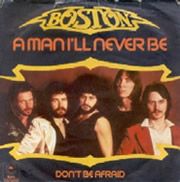 Completing the first side is “A Man I’ll Never Be”, the best song on Don’t Look Back. On its surface, this is built like a typical power ballad (even though those really weren’t that typical in 1978). But what makes this song special is the layered guitar riffs, which are some of the best ever – anywhere! Particularly impressive is the Scholz’s lead during the middle section which jumps from key to key in an impressive choir of guitar mastery. Nearly all the sonic candy provided by Scholz alone, with Delp adding rather low key vocals and drummer Sib Hashian sticking to a standard drum beat. Further, the sticky-sweet, trite lyrics keep this one from being a true masterpiece, while it certainly comes close. In the end all the great guitars give way to a majestic organ to bring the climax to an end before a very short piano outro closes the song. This piano was actually the only part of the entire album recorded in a “professional” recording studio, simply because Scholz could not fit one in his basement.
Completing the first side is “A Man I’ll Never Be”, the best song on Don’t Look Back. On its surface, this is built like a typical power ballad (even though those really weren’t that typical in 1978). But what makes this song special is the layered guitar riffs, which are some of the best ever – anywhere! Particularly impressive is the Scholz’s lead during the middle section which jumps from key to key in an impressive choir of guitar mastery. Nearly all the sonic candy provided by Scholz alone, with Delp adding rather low key vocals and drummer Sib Hashian sticking to a standard drum beat. Further, the sticky-sweet, trite lyrics keep this one from being a true masterpiece, while it certainly comes close. In the end all the great guitars give way to a majestic organ to bring the climax to an end before a very short piano outro closes the song. This piano was actually the only part of the entire album recorded in a “professional” recording studio, simply because Scholz could not fit one in his basement.
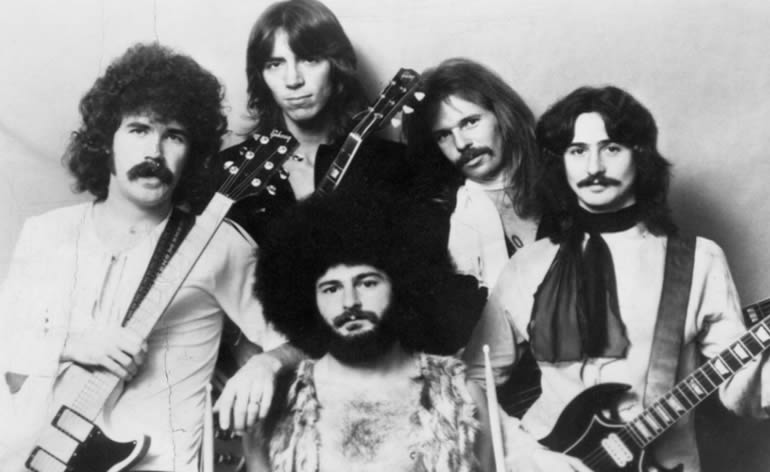
By all accounts, the second side of the album is where the weak spots lie and Scholz later conceded that only the first side of Don’t Look Back was truly completed. The best part of the upbeat “Feelin’ Satisfied” is a long riff-driven outro following the second verse. The next track “Party”, the weakest song on the album which sounds like a cheap filler to emulate the far superior “Smokin’” from Boston. A much better song is the moody yet melodic “Used to Bad News”, written solely by Delp. Here Scholz completely puts down the guitars to focus on the fine melodies of the Hammond organ. Delp fills in with a great acoustic (along with his vocal melodies) and Goudreau provides a short guitar lead before the organ returns for some fine riffing during the final verse. Although the shortest song on side two, “Used to Bad News” seems to pack in more quality than the other three combined. “Don’t Be Afraid” finishes things off, again offering sonic quality and vocal mastery with the added dynamics of some mean drumming by Hashian. Still, the composition itself is rather weak, making this an unsatisfying conclusion to what potentially could have been a much better album.
Boston went on another tour following Don’t Look Back, but management problems soon plagued the band. Further, Scholz refused to be hurried in producing Boston’s third album and CBS Records filed a lawsuit, alleging breach of contract. A long court battle ensued and that album, Third Stage took more than eight years until it was finally released at the end of 1986.

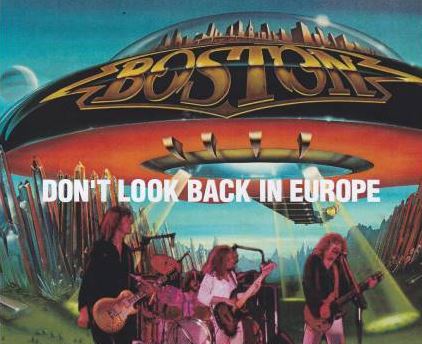
BOSTON – 40th Anniversary Of Don’t Look Back Album Celebrated On In The Studio
North American syndicated rock radio show and website InTheStudio With Redbeard: The Stories Behind History’s Greatest Rock Bands celebrates the 40th anniversary of Boston’s Don’t Look Back album.
“Forty years ago, the sweltering summer 1978, the band Boston was a major player in a drama playing out in Memphis TN. The band’s debut Boston two years earlier had by August sold seven million copies on its way to becoming the top selling debut ever (now over 17 million ), and the follow-up Don’t Look Back was being rush released to North American rock radio stations.
“Boston, led by guitarist/composer Tom Scholz, was barely two years from playing Beantown roller rinks and armouries, but now their third date on the headline Don’t Look Back tour was set for August 15 in Memphis’ 10,000 seat Mid South Coliseum in the birthplace of rock and roll.
“A few days earlier I had moved to the sweltering city in wilting 100 degree heat and 90% humidity to join the newbie ROCK 103, just as tens of thousands were arriving there from all over the world to mark the first anniversary of the death of Elvis Presley. Meanwhile in a wage and benefit dispute with the city, the Memphis Police had gone on strike, and the day of the scheduled Boston concert, 1400 firefighters walked out.”
In the sweltering Summer 1978, the band Boston was a major player in a drama playing out in Memphis TN. The band’s debut Boston two years earlier had by August sold seven million copies on its way to becoming the top selling debut ever (now over 17 million ), and the follow-up Don’t Look Back was being rush released to North American rock radio stations. Boston, led by my guest here in this classic rock interview, guitarist/composer Tom Scholz, was barely two years from playing Beantown roller rinks and armories, but now their third date on the headline Don’t Look Back tour was set for August 15 in Memphis’ 10,000 seat Mid South Coliseum in the birthplace of rock and roll. A few days earlier I had moved to the sweltering city in wilting 100 degree heat and 90% humidity to join the newbie ROCK 103 , just as tens of thousands were arriving there from all over the world to mark the first anniversary of the death of Elvis Presley. Meanwhile in a wage and benefit dispute with the city, the Memphis Police had gone on strike, and the day of the scheduled Boston concert, 1400 firefighters walked off the job. Welcome to Memphis, y’all.
City leaders immediately imposed a curfew making it illegal to be out after 8pm until 6 am, but there was just one little sticking point: local concert promoter the late Bob Kelley had sold out ten thousand Boston tickets in advance for an 8 pm start. A compromise was hastily brokered so that, on a weekday no less, the concert would start at 4 pm, allowing everybody to get off the Memphis streets before National Guard troops enforced the curfew.
As I walked home through the deserted Memphis streets to the Orange Mound neighborhood just before midnight, I was listening to the late night ROCK 103 deejay over a little portable radio when his voice suddenly cut out at the same precise moment as every street light first dimmed to a dirty yellow glow, then a second later went pitch black. Without any headlights from the banned cars nor any light coming from the buildings and homes, I suddenly realized that I was in an unfamiliar city of 3/4 million population, without police or emergency fire/rescue services, at midnight in the hot inky blackness of a massive blackout. A decade before cell phones were available, it probably made no difference because I could not make out where I was, nor did I know anybody to call. Over the next 24 hours, 166 houses and buildings would burn, but I am proud to say that the Boston concert August 15, 1978 in Memphis went off without incident. – Redbeard



















![LOS ARGONAUTAS: Caballo de Troya CD ..rare [Great Argentinian pshychedelic and melodic Rock] !](https://yperano.com/wp-content/uploads/2016/03/17937-LOS-ARGONAUTAS-Caballo-de-Troya-CD-..rare-Great-Argentinian-pshychedelic-and-melodic-Rock-300x302.jpg)
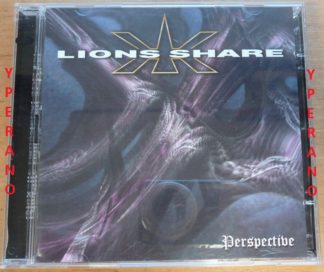
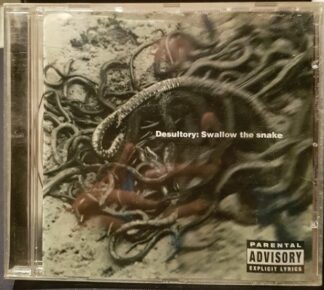



Reviews
There are no reviews yet.